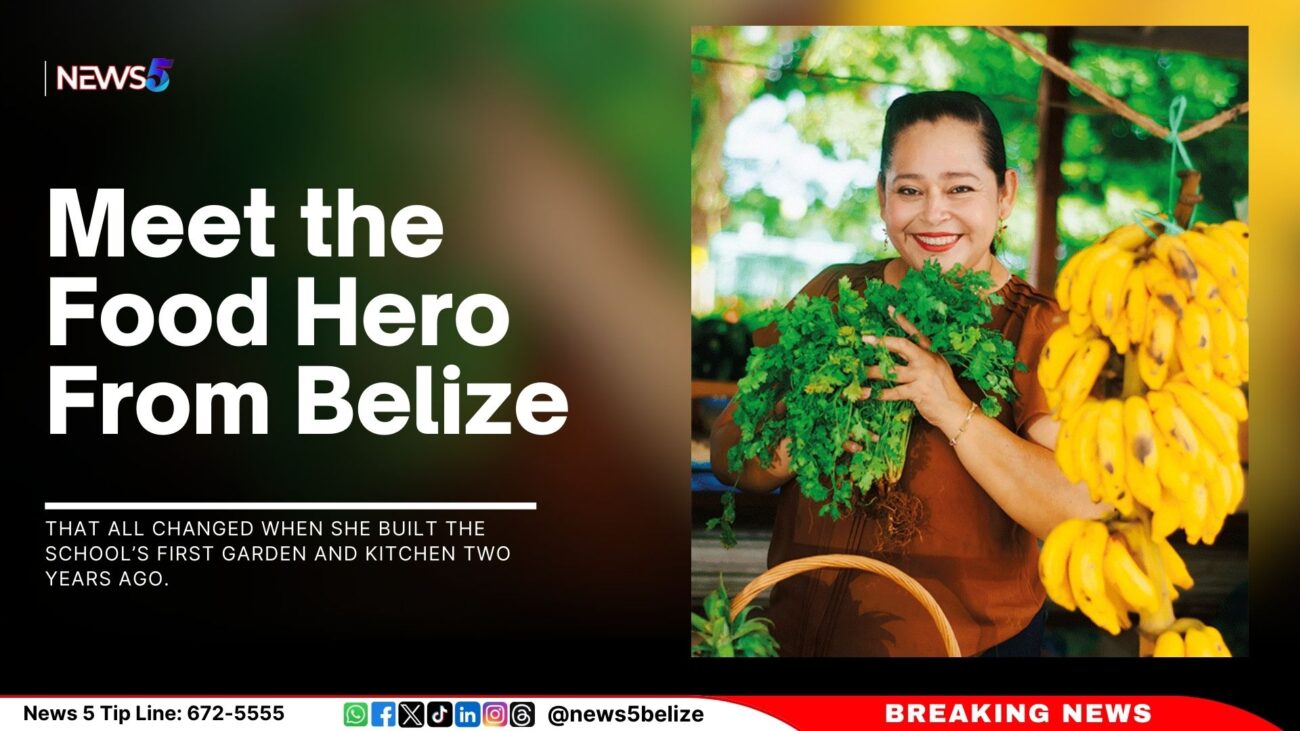Meet the Food Hero From Belize
Seleni Grajales’ days were always busy. But since 2022, things got even busier for the principal from Belize, who now starts each day in her school kitchen, checking in on lunch preparations for the 130 students under her care.
Like many schools in the Central American country, the Santa Martha Government Primary School near the town of Orange Walk ran for years without a cafeteria. At lunchtime, students left to eat at home, creating an inconvenience for parents who had to be home to receive them and a concern for teachers who knew that not all kids would have a proper meal.
“Many of the students would go home and have nothing to eat,” recalls Seleni. “Or [they’d have] just basics like beans and rice – no veggies.”
“When they’d go back to school, they wouldn’t pay attention because their tummy hurt,” she says. Many children were also behind in development and their weight was low.
That all changed when she built the school’s first garden and kitchen two years ago. “From the garden we are planting what we use for the meals: tomato, cabbage, cilantro,” she explains.
They don’t grow everything that’s on the menu, but enough to cut cost. Plus, the garden is a great learning laboratory for the students, she says.
The two upper level classes – with students aged 11 to 13 – spend an hour each day in the garden under supervision of Ms. Seleni and other teachers. They observe the different phases of plant growth and master basic gardening skills they can use at home; they learn about pests and organic plant-care, and about the food chain and healthy eating, so they gain an understanding how the produce they grow benefits their body.
“We see less absenteeism because the students know they will get a meal at school,” says Seleni. “This year, for the first time ever, we have 14 students going to high school, out of 18 students in the class.”
What’s more, more parents are working because they can leave their children to eat lunch at schools, and that means more financial security.
Seleni’s school got support from various government and FAO initiatives that helped them set up the garden and kitchen as part of a new national school feeding programme.
“Food goes along with development and education,” she stresses. “They are eating healthy, wanting to be more at school, and continuing their education.”
The school kitchen and garden were established as part of the Resilient School Feeding sub-project under the Mexico-CARICOM-FAO Initiative, titled Cooperation for Climate Change Adaptation and Resilience in the Caribbean (Resilient Caribbean Initiative).







Facebook Comments